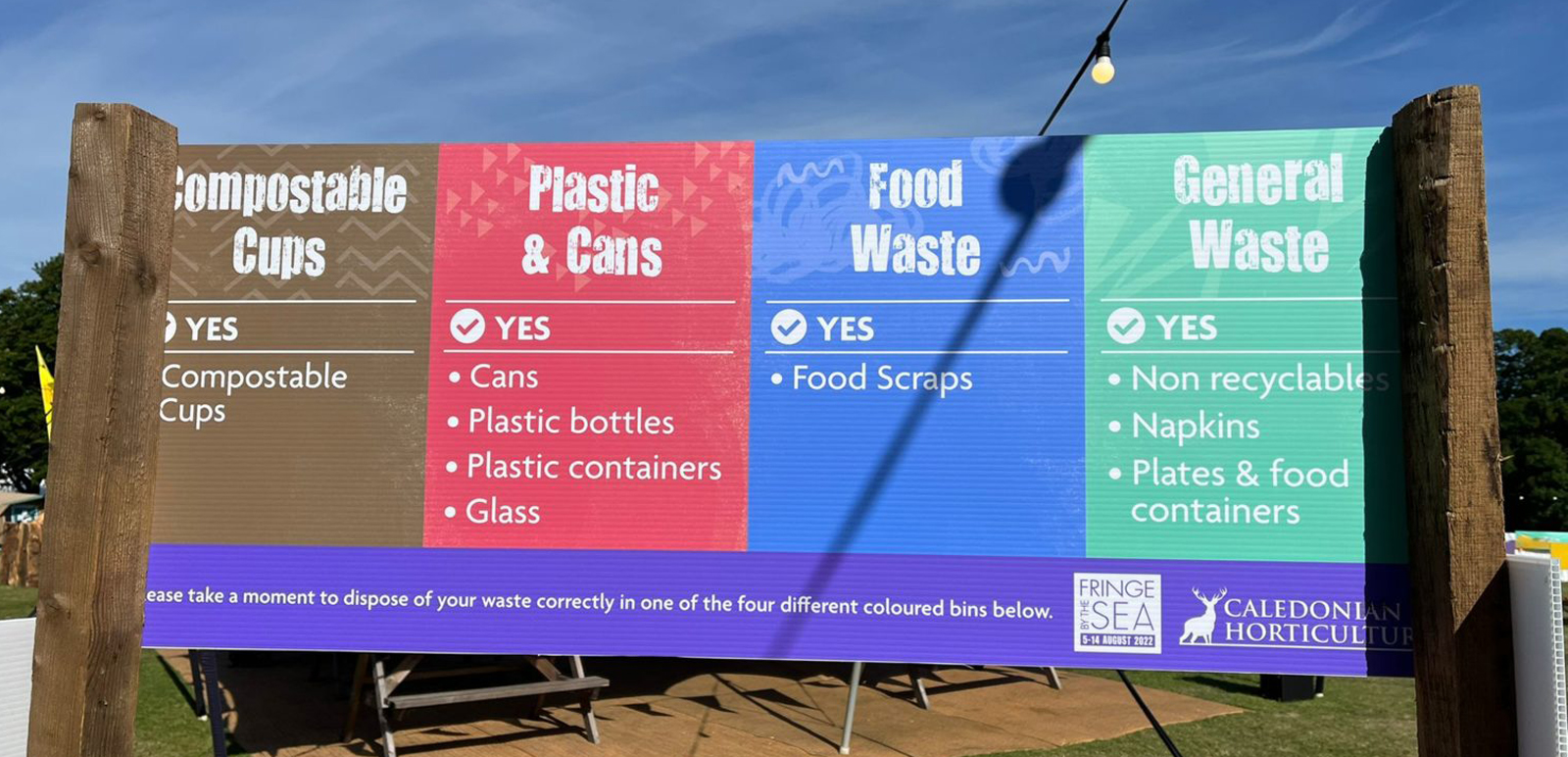From the 5th to the 14th of August, North Berwick was transformed as it hosted this year’s Fringe by the Sea festival. Over 200 events were staged in the Lodge Grounds and included a mix of local, national, and international talent. The shows and performances included music, literature, comedy, science, and nature, and lots of delicious food and drink from the county’s best street food stalls.
Commitment to minimise the impact on the environment
Fringe by the Sea has committed to minimising its impact on the environment. Last year more than 39,000 people visited the festival and more are expected this year. Therefore, it is a great platform for bringing environmental issues and discussions on the climate change crisis to audiences. It will also demonstrate more sustainable practices, such as going plastic-free and efficient waste management and recycling.
Financial Benefit
There is a huge financial benefit to recycling as well as all the environmental reasons. It costs over £150 per tonne to dispose of general waste. If the different recyclable materials are separated, they are much cheaper to dispose of, and in some cases it can be free of charge or even a rebate given depending on the quantity and quality of the material. For example, for recycling the usual rates would be approximately:
- General waste: £152 per tonne
- Plastic and can recycling: £100 per tonne
- Glass recycling: FOC or a rebate depending on the quantity and quality
- Compostable cups: £32 per tonne
- Food waste: £30 per tonne
All of the companies involved in taking the recycling from Fringe By The Sea kindly did so free of charge to support the event.
What happens to each material?
Compostable Cups: After the festival, Caledonian Horticulture will take all the cups to be composted and made into our Green Goodness compost. We will then return this to the lodge grounds to be used in the flower displays for next year.
Food Waste: The food waste will be used to produce biomethane at Millerhill AD plant which is then converted into enough electricity to power more than 3,000 homes around Edinburgh. The leftover liquid is a nutrient-rich bio-fertiliser that is spread on local farms by Caledonian Horticulture.
Plastic and Cans: The plastic and cans will be taken to Levenseat Materials Recycling Facility to be sorted and baled up before being made into new products.
Glass: Glass from FBTS will be taken to Dryden Aqua in Midlothian to make into a water filtration media.
General Waste: The general waste will be turned into a usable form of energy, usually through incineration such as electricity, heat, or transport fuel.
| Material | 2021 | 2022 |
| Plastic & Cans | 700kg | 1063kg |
| Glass | 1000kg | 2080kg |
| Compostable Cups | 520kg | |
| Food Waste | 270kg | 980kg |
| General Waste | 2000kg | 3050kg |
We hope that everyone attending the Fringe by the Sea this year had a great time and we thank you for helping ensure that we recycled as much as possible!

